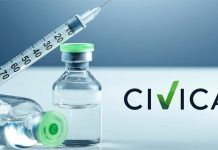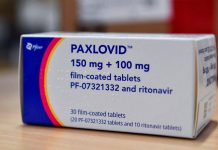Generic drugs are available to enhance your cognition, improving your work performance, but they do pose difficult public policy challenges.
The use of generic drugs, such as the narcolepsy drugs modafinil and armodafinil and the ADHD medications like Adderall and Ritalin, has now become common among American students as well as office-goers.
Also called nootropics or pharmacological cognitive enhancers, generic smart drugs are often used to work more and efficiently, boosting their performance. However, considering the anecdotal evidence we have, we know very little about smart drugs.
The Financial Times once claimed that smart drugs are “becoming popular among city lawyers, bankers, and other professionals keen to gain a competitive advantage over colleagues,” according to Harvard Business Review (HBR).
Some evidence suggests that smart drugs do work. A study by the researchers of Harvard Medical School and Oxford showed that modafinil, sold under the brand name Provigil, has significant cognitive-enhancing benefits, improving the user’s ability to plan and make decisions.
The study’s co-author Anna-Katharine Brem, a neuropsychologist, said modafinil has “vanishingly few side effects” when used in a controlled environment.
Another study from Imperial College London has shown that modafinil helped sleep-deprived surgeons become better at planning, redirecting their attention, and being less impulsive when making decisions, according to HBR.
Interestingly, generic smart drugs are not difficult to get, especially in the United Kingdom. For instance, it is legal to use modafinil in the United Kingdom without a prescription, but not in the United States.
The off-label use of ADHD medications like Adderall and Ritalin has also increased. The sales of these cognitive enhancers have been growing rapidly, as the incidence keeps growing.
The overall prevalence of ADHD among U.S. adults increased to 4.4% between 2001 and 2003, according to the National Institute of Mental Health. The annual incidence of ADHD rose from 9.43 diagnoses per every 10,000 people in 2007 to 13.49 per 10,000 people in 2016, according to CNN.
If left untreated, ADHD could lead to unemployment and even substance abuse, which is why more and more people use Adderall or Ritalin.
One study, published in the journal Nature, argued in favor of moderate use of generic smart drugs. It said, “Cognitive enhancement has more to offer individuals and society, and a proper societal response will involve making enhancements available while managing their risks.”
But the big question is – is it morally right to use generic smart drugs to improve work performance?
Yes, says a new policy at Duke University. It says the “unauthorized use of prescription medicine to enhance academic performance” should be treated as cheating.
As a manager or CEO of a company, would you want your employees to be under the influence of these prescription drugs?
The strongest argument against the use of generic smart drugs is that it could lead to an ever-intensified corporate rat race, according to HBR. The use of generic smart drugs to improve work performance is a bit ethical dilemma. Nevertheless, people are using them in the workplace anyway.























